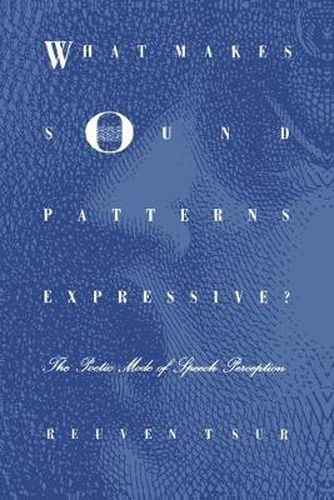Readings Newsletter
Become a Readings Member to make your shopping experience even easier.
Sign in or sign up for free!
You’re not far away from qualifying for FREE standard shipping within Australia
You’ve qualified for FREE standard shipping within Australia
The cart is loading…






Poets, academics and those who simply speak a language are subject to mysterious intuitions about the perceptual qualities and emotional symbolism of the sounds of speech. Such intuitions are Reuven Tsur’s point of departure in this investigation into the expressive effect of sound patterns. Research in recent decades has established two distinct types of aural perception - a non-speech mode, in which the acoustic signals are received in the manner of musical sounds or natural noises, and a speech mode, in which acoustic signals are excluded from awareness and only an abstract phonetic category is perceived. This study proposes a third type of speech perception, a poetic mode in which some part of the acoustic signal becomes accessible, however faintly, to consciousness.
$9.00 standard shipping within Australia
FREE standard shipping within Australia for orders over $100.00
Express & International shipping calculated at checkout
Poets, academics and those who simply speak a language are subject to mysterious intuitions about the perceptual qualities and emotional symbolism of the sounds of speech. Such intuitions are Reuven Tsur’s point of departure in this investigation into the expressive effect of sound patterns. Research in recent decades has established two distinct types of aural perception - a non-speech mode, in which the acoustic signals are received in the manner of musical sounds or natural noises, and a speech mode, in which acoustic signals are excluded from awareness and only an abstract phonetic category is perceived. This study proposes a third type of speech perception, a poetic mode in which some part of the acoustic signal becomes accessible, however faintly, to consciousness.